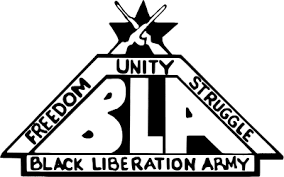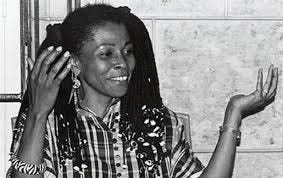The Black Liberation Army (1970–1981) – The War Against State Violence
Black History Through the Lens of Liberation
In the fight against white supremacy, oppression does not pause—and neither does resistance.
The Black Liberation Army (BLA) emerged in the 1970s as one of the most radical and uncompromising forces in the Black freedom struggle. Born from the repression of the Black Panther Party, the BLA was a direct response to police violence, systemic racism, and the unyielding war the U.S. government waged against Black revolutionaries.
This was not a movement of speeches or legislation.
This was armed self-defense in the face of state terror.
The Birth of the Black Liberation Army
The BLA was not an official organization with a centralized structure—it was a collective of underground cells committed to one purpose: the total liberation of Black people by any means necessary.
Emerging from the repression of the Black Panther Party – After the FBI’s COINTELPRO program waged war on the Panthers, assassinating leaders like Fred Hampton and forcing others into exile or imprisonment, some members refused to surrender. The BLA took the fight underground.
Armed resistance against police brutality – The BLA viewed police not as enforcers of justice, but as a domestic occupying force in Black communities. They targeted police officers, engaging in armed confrontations as an act of self-defense and resistance.
Expropriation of funds for the revolution – BLA members conducted bank robberies (which they called "fundraising") to finance the liberation struggle, seeing capitalism as a tool of white supremacy that needed to be dismantled.
International solidarity – Like the IRA in Ireland, the Mau Mau in Kenya, and other armed liberation movements, the BLA saw itself as part of a global fight against colonialism and imperialism.
The War on Black Revolutionaries
The U.S. government responded with ruthless repression.
The BLA was labeled a terrorist organization, and law enforcement dedicated entire task forces to dismantling its cells. Many members were killed or arrested.
Assata Shakur, one of the most well-known BLA members, was framed for murder and sentenced to life in prison before escaping to Cuba, where she remains in exile.
Dr. Mutulu Shakur, stepfather of Tupac Shakur, was arrested and spent decades in prison for his involvement in the movement.
Sundiata Acoli, Jalil Muntaqim, and other BLA members were imprisoned for decades, many held in solitary confinement under brutal conditions.
The war on Black liberation did not end with the BLA.
It continues today through mass incarceration, political imprisonment, and the criminalization of Black resistance.
The Legacy of the Black Liberation Army
Though the BLA was largely dismantled by the early 1980s, its impact remains.
It forced a national conversation about police violence and self-defense.
It inspired movements like Copwatch, Black Lives Matter, and modern-day abolitionists who understand that the police state must be dismantled for true liberation.
It proved that liberation does not come from requests or reform—it comes from revolutionary action.
Reflection: Who Controls the Narrative?
The BLA, like many Black liberation movements, has been demonized in history books, labeled as criminals and terrorists rather than freedom fighters.
But ask yourself:
Why is armed Black resistance seen as criminal, while police violence is seen as "law and order"?
Why are Black revolutionaries given life sentences, while white supremacist terrorists are treated with leniency?
What does this say about who controls the narrative of history?
The fight for liberation continues. Who are today’s revolutionaries, and how do we ensure their stories are told on our terms?
Further Learning
📖 Read:
Assata: An Autobiography by Assata Shakur
We Want Freedom by Mumia Abu-Jamal
📺 Watch:
The FBI’s War on Black America (documentary)
13th (Ava DuVernay’s film on the prison-industrial complex)
✊🏾 Act:
Learn about and support political prisoners like Mumia Abu-Jamal and Mutulu Shakur.
Join local abolitionist groups fighting to end police violence and mass incarceration.
When we tell our own stories, we reclaim truth and move resistance forward. What stories of your own people have you been told that just may not be true? Let us continue to become curious so that we may unlearn the lies of oppressive systems.
In solidarity and liberation,
Desireé B. Stephens CPS-P
Educator | Counselor | Community Builder
Founder, Make Shi(f)t Happen







